
Today, women make up nearly half of America's workforce, and counting. But even as women achieve new levels of success at work, some fields remain heavily male-dominated. Many of these occupations are seen as stereotypically "masculine" work, yet some of the gentleman's club-type jobs we see today had early female influence.
These five occupations actually have long, often-forgotten histories of women helping to pioneer their early days:
1. The first computer programmer ever was a woman.
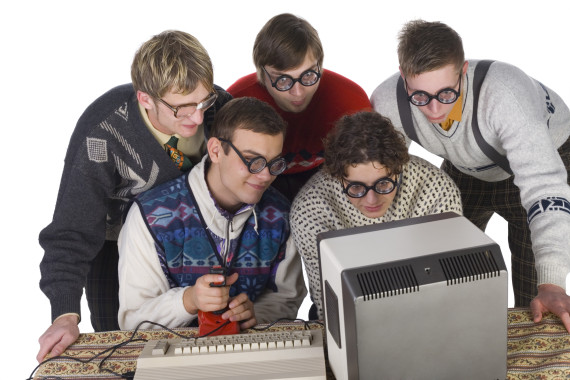
Today's tech world is notoriously male-dominated, with women holding less than 25 percent of science, technology, engineering and math jobs nationally. And yet, the gentlemen of Silicon Valley owe a lot to the 19th-century founder of scientific computing: Ada Byron, Countess of Lovelace, or "Ada Lovelace."
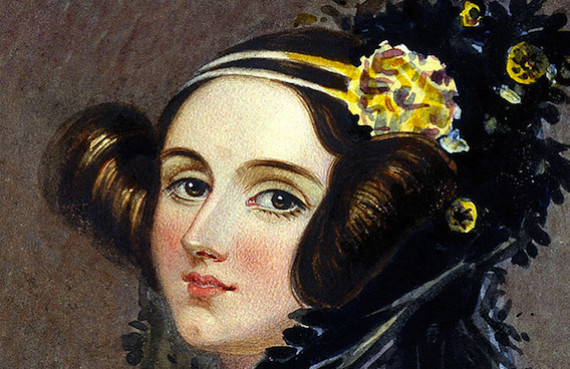
Lovelace collaborated with Charles Babbage, the so-called "Father of Computers," and wrote the world's first computer coding algorithm. Byron wasn't the only foremother of computer science, though. During World War II, six women mathematicians, nicknamed the “human computers,” did most of the programming for one of the world's first all-electronic computers. Women remained prominent in computer programming throughout the '40s and '50s, but their numbers decreased as the industry adopted a number of recruiting techniques that favored men in the late 1960s.
2. For most of human history, women brewed those ever-so-manly barrels of beer.
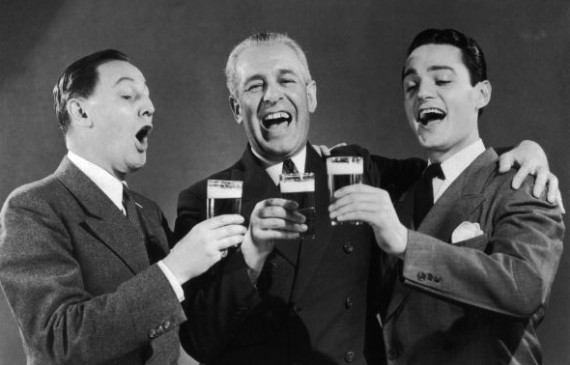
Today, women make up less than one percent of workers are employed in beer manufacturing. But evidence from ancient Egyptian hieroglyphics suggests that women were originally responsible for brewing beer, which was considered a feminine, domestic task for centuries.
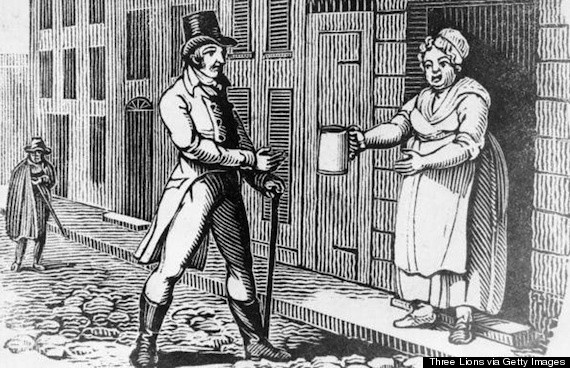
Throughout Europe in the Middle Ages, women were masters of brewing, and many of these so-called "ale-wives" or "brewsters" used their talents to earn pocket money. With the industrialization of the 17th century, beer became a large-scale factory business, and those factory jobs were given to men.
3. From 1916 to 1923, American women had more power in the world of moviemaking than in any other domestic industry.
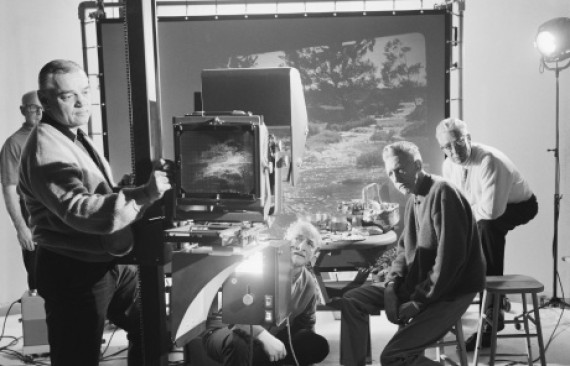
For decades, women have been completely outnumbered in nearly every aspect of the film industry. Yet, in the early days of silent film, moviemaking was one of the most female-friendly fields. Indeed, hundreds of women worked as writers, directors, producers and editors in the early-20th century, and many of their stories were only recently uncovered by Harvard professor Jane Gaines.
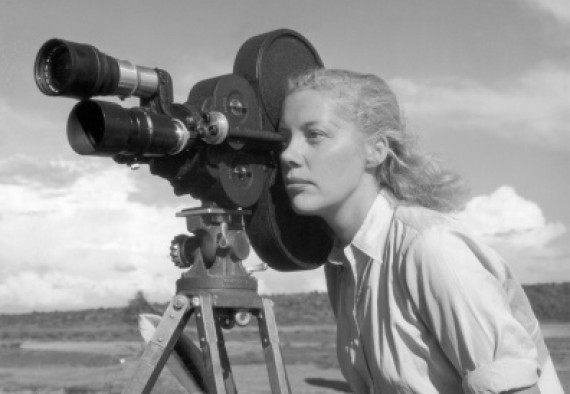
Gaines determined that, from 1916 to 1923, women actually held more power in the film industry than in any other industry in the United States. (Unfortunately, 90 percent of American films made before 1929 were not properly preserved, so much of their work cannot be enjoyed today.) In fact, in 1923, more independent studios were owned by women than by men, a phenomena that Playboy dubbed the "her own company epidemic." Then, as the industry became centralized, a few powerful, male-owned companies took hold, and women were pushed out of most of the available jobs. Meanwhile, several authors of important important early film history books ignored women's films and achievements, and many of these influential women were nearly forgotten.
4. Women were the original drummers.
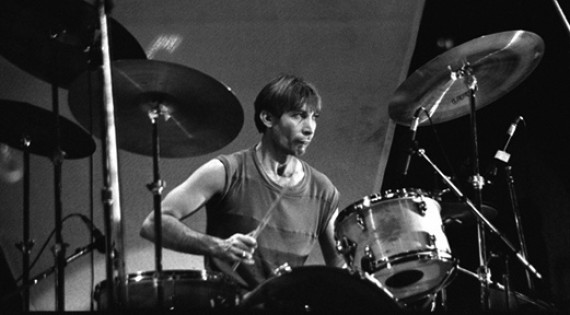
Today, percussion instruments are typically seen as "masculine" -- associated with military marching bands or rambunctious rock stars. Yet, ancient artifacts and paintings reveal that ancient women were the original drummers.
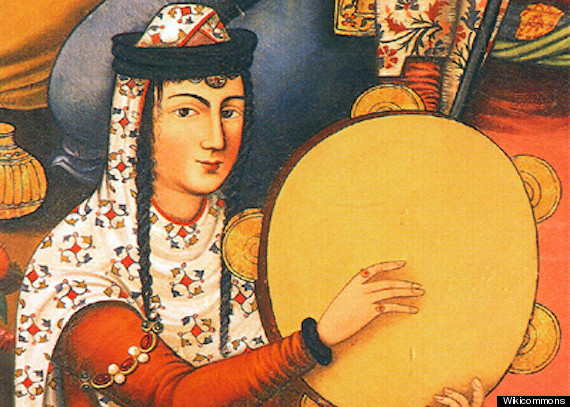
According to Layne Redmond, author of When The Drummers Were Women, the first-known drummer in history was Lipushiau, a Mesopotamian priestess. Drums carried connotations of birth and fertility and were sacred to women. Women played drums during religious rituals for about 3,000 years of human history. That all changed when the Christian church banned women from singing or playing instruments. Public performance of music increasingly became the turf of men.
5. While the medical field excluded women doctors for hundreds of years, women were some of early mankind's most prominent healers.

Many women were highly-respected medical experts in ancient Egypt and ancient Greece. Throughout Europe's early history, nuns frequently worked as healers, and some, like Hildegard of Bingen, wrote influential records of their cures and treatments they used, often in the fields of gynecology and child-birthing practices.
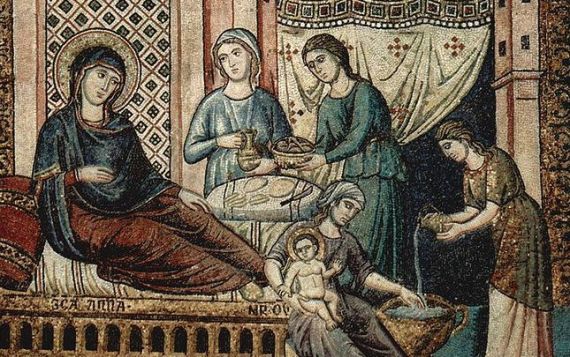
Then, in the late Middle Ages, the church decreed that all doctors must obtain a university education. At the time, women were banned from attending university, and thus could not practice medicine legally. Those who practiced medicine were frequently prosecuted for witchcraft. After that, the medical establishment often ignored women's contributions or attributed their achievements to men. For example, historians wrongly assumed that Trotula, a renowned 11th-century female professor of medicine, and author of a classic book on medicine, was a man -- simply because they couldn't believe a woman had written such an influential medical book.
Even when women faced social and educational barriers to enter the medical field, they continued to heal those who could not afford doctors. In recent decades, women have made incredible progress in the medical field, though sexism still lingers.
Related
Before You Go








